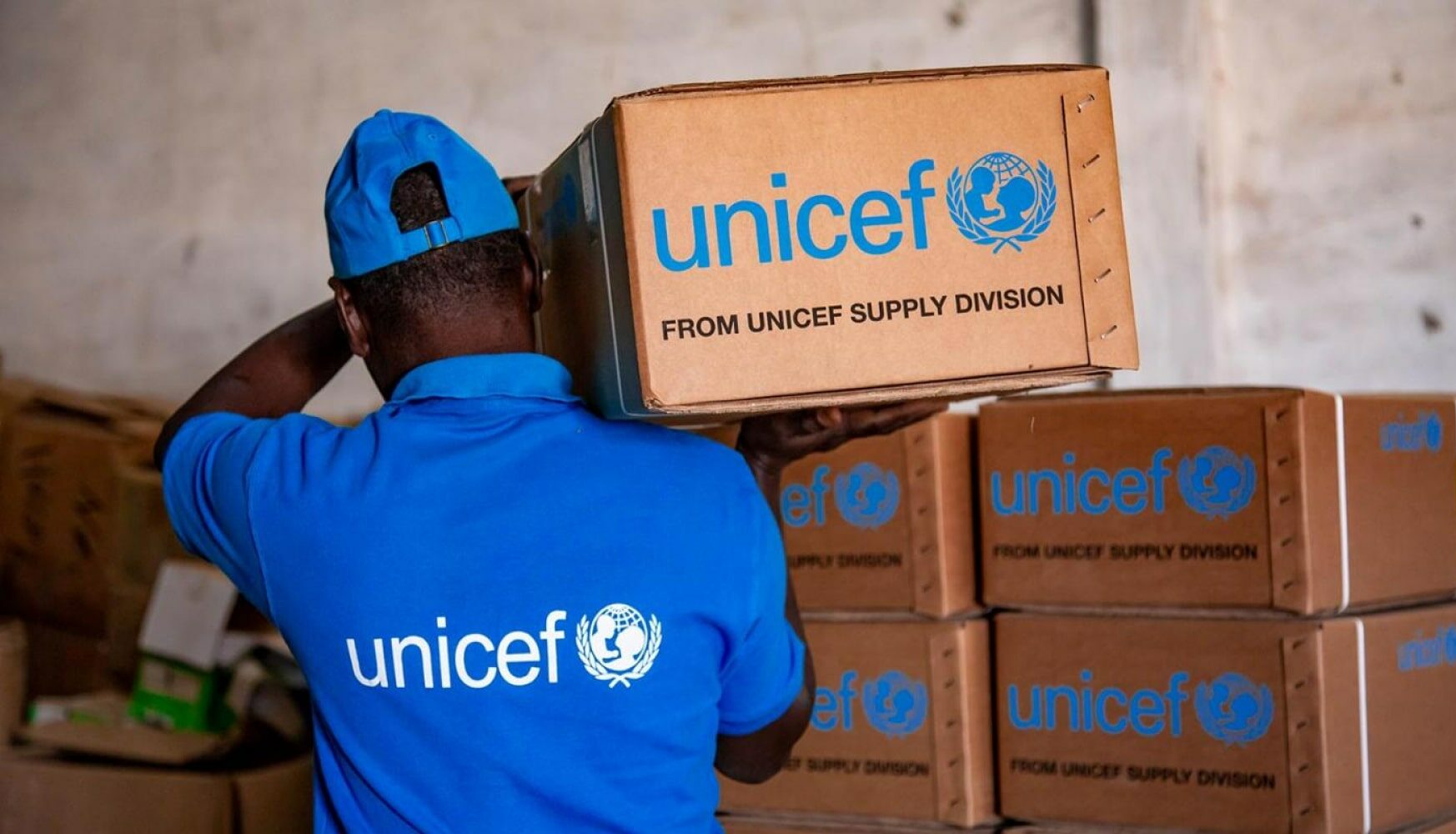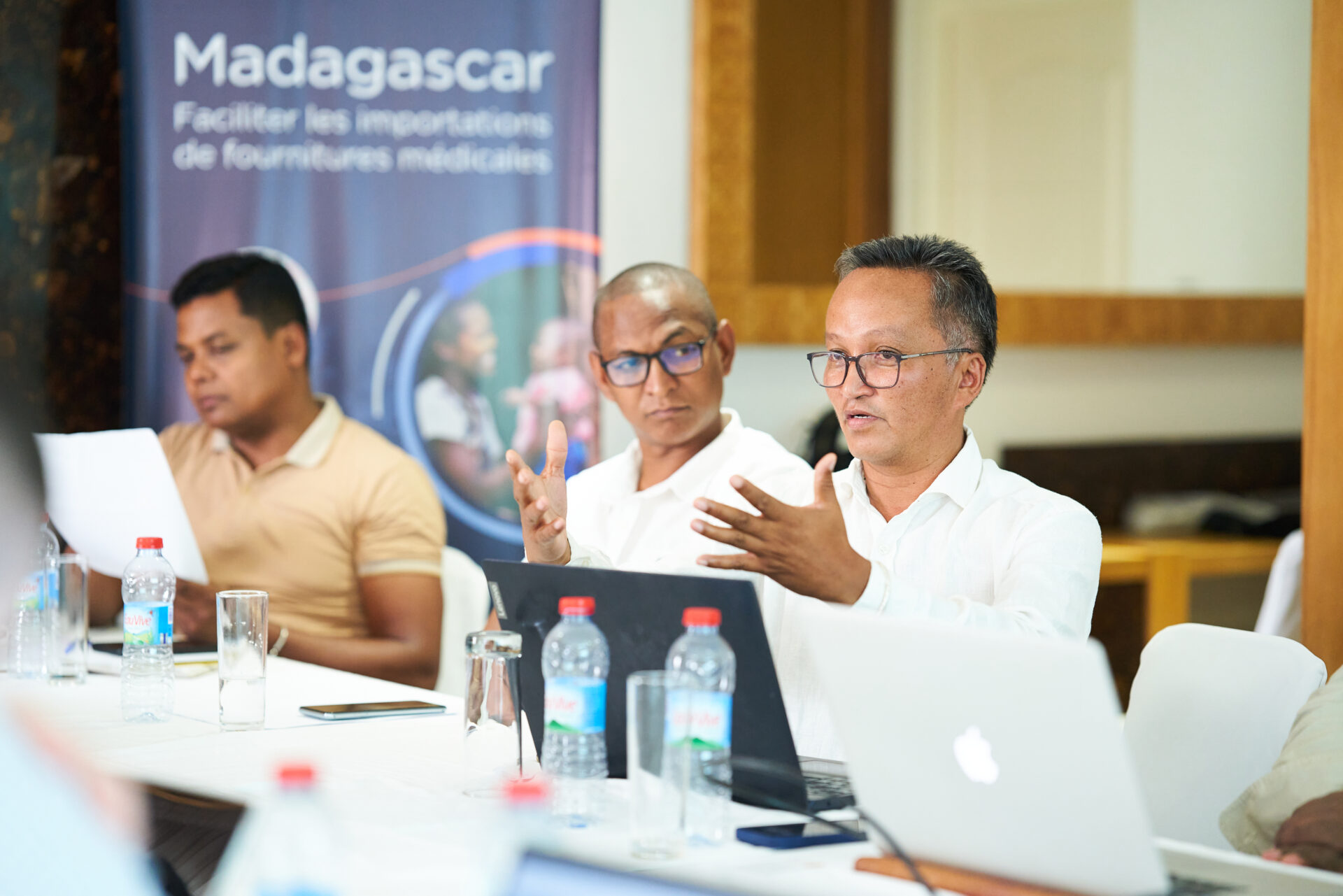Jean-Cedric Meeus, Chief of UNICEF’s Global Transport Supply Division, and Alliance Director Philippe Isler share what makes this partnership click.
On the face of it, we are an unlikely pair. After all, what does a UN child rights agency have in common with an alliance focused on growing cross-border trade?
But dig a little deeper and this collaboration makes perfect sense. Every day, millions of lives around the world depend on the timely arrival of life-saving medical supplies, especially in developing and least developed countries.
At the Alliance and UNICEF, we recognise the urgent need to bridge the gaps that delay these supplies from reaching the people who need them most. That’s why we’ve formed the ADEPT programme (Accelerating Delivery of Essential Products Together), blending our expertise, resources, and passion to streamline the movement of humanitarian and medical products into these countries.
 Facing Challenges Together
Facing Challenges Together
The ADEPT programme leverages our respective strengths. UNICEF brings powerful logistical insights and a vast network of partners within the humanitarian sector. The Alliance, with its expertise in customs processes, regulatory frameworks, and digital solutions, provides the know-how and tools to streamline the cross-border movement of critical goods.
We are working together with governments and the private sector to cut the time and cost involved in providing humanitarian relief, enabling shipments to move faster across borders to reach those in need as quickly as possible.
Early Results and Successes
We have already made progress. Beginning in 2022, with a project to automate crucial border procedures in Mozambique, we were able to significantly reduce processing times for imports of vaccines and related products. Buoyed by this success, earlier this year we extended and expanded our initial collaboration, establishing the ADEPT programme to cover at least ten more priority countries.
Work is already underway in Madagascar and Nepal where our partnership is working to expedite clearance, reducing pre-shipment processing times for humanitarian health products, improving the traceability of documents, and increasing visibility and co-operation among ministries, agencies, and customs.
Building Resilience
 Our work together is not only about immediate responses; it’s about improving the ability of countries to handle both crises and regular import operations in a timely and efficient fashion. Modernising border procedures and removing barriers to trade help countries build supply chain resilience, better equipping them to deal with ongoing development programmes and future health emergencies, including pandemics and natural disasters. These advancements are helping developing nations adopt modern, efficient customs systems that work better for all stakeholders – both for humanitarian aid and regular commercial trade.
Our work together is not only about immediate responses; it’s about improving the ability of countries to handle both crises and regular import operations in a timely and efficient fashion. Modernising border procedures and removing barriers to trade help countries build supply chain resilience, better equipping them to deal with ongoing development programmes and future health emergencies, including pandemics and natural disasters. These advancements are helping developing nations adopt modern, efficient customs systems that work better for all stakeholders – both for humanitarian aid and regular commercial trade.
A Logical Progression
We are off to a very promising start but we are also aware that we have a lot of work ahead of us to ensure that critical medicines and equipment can ship more efficiently, no longer incurring costs that could be better spent on people in need. Recognising the urgent importance of this work, we are proud to join our respective skillsets and experience to ensure critical relief can cross borders for the benefit of vulnerable populations in developing countries and LDCs as seamlessly as possible, now and into the future.

- Streamlining clearance of health supplies for humanitarian use in Nepal.
- Stengthening Public Healthcare in Madagascar.
- Easing routine vaccines supply in Mozambique.

